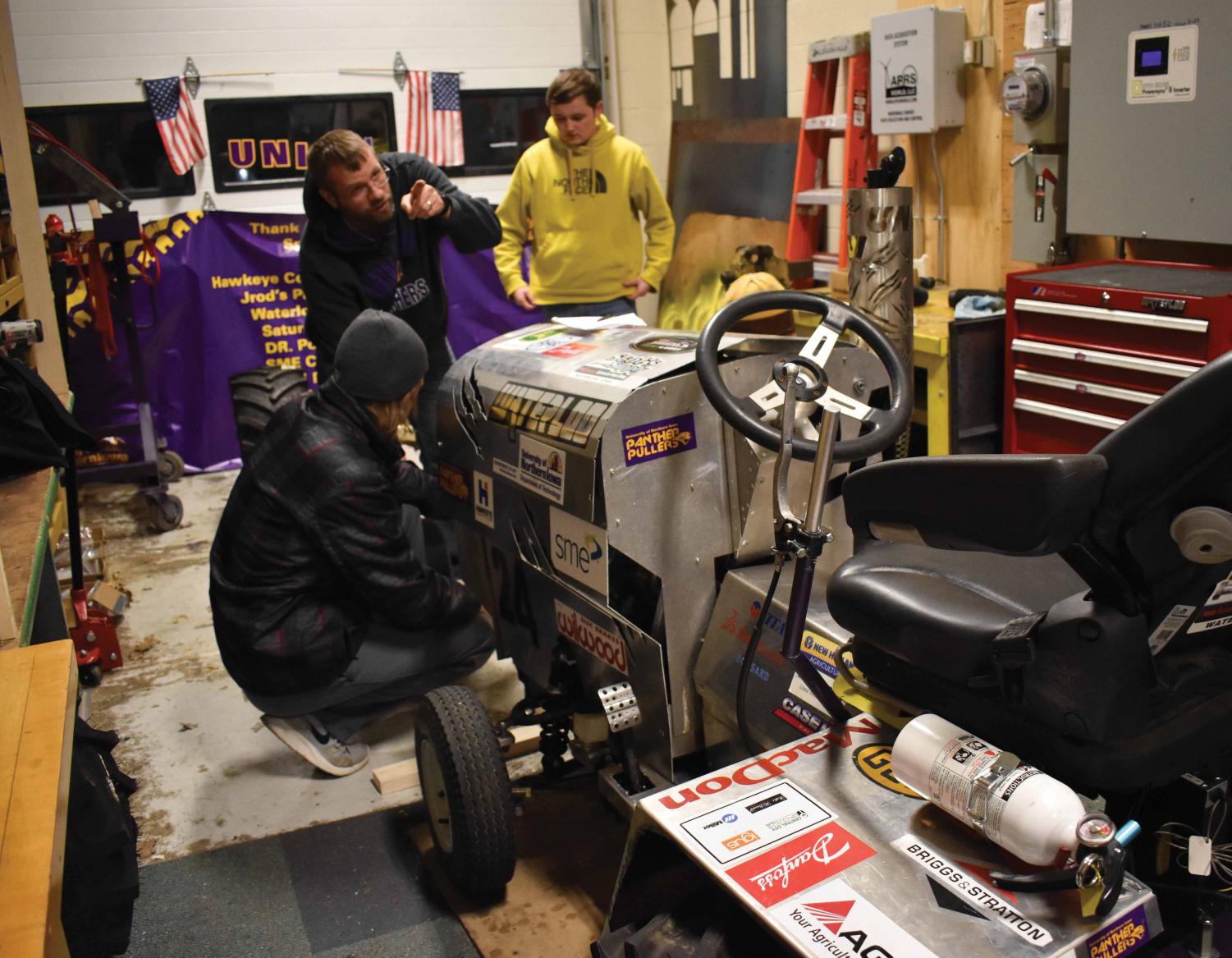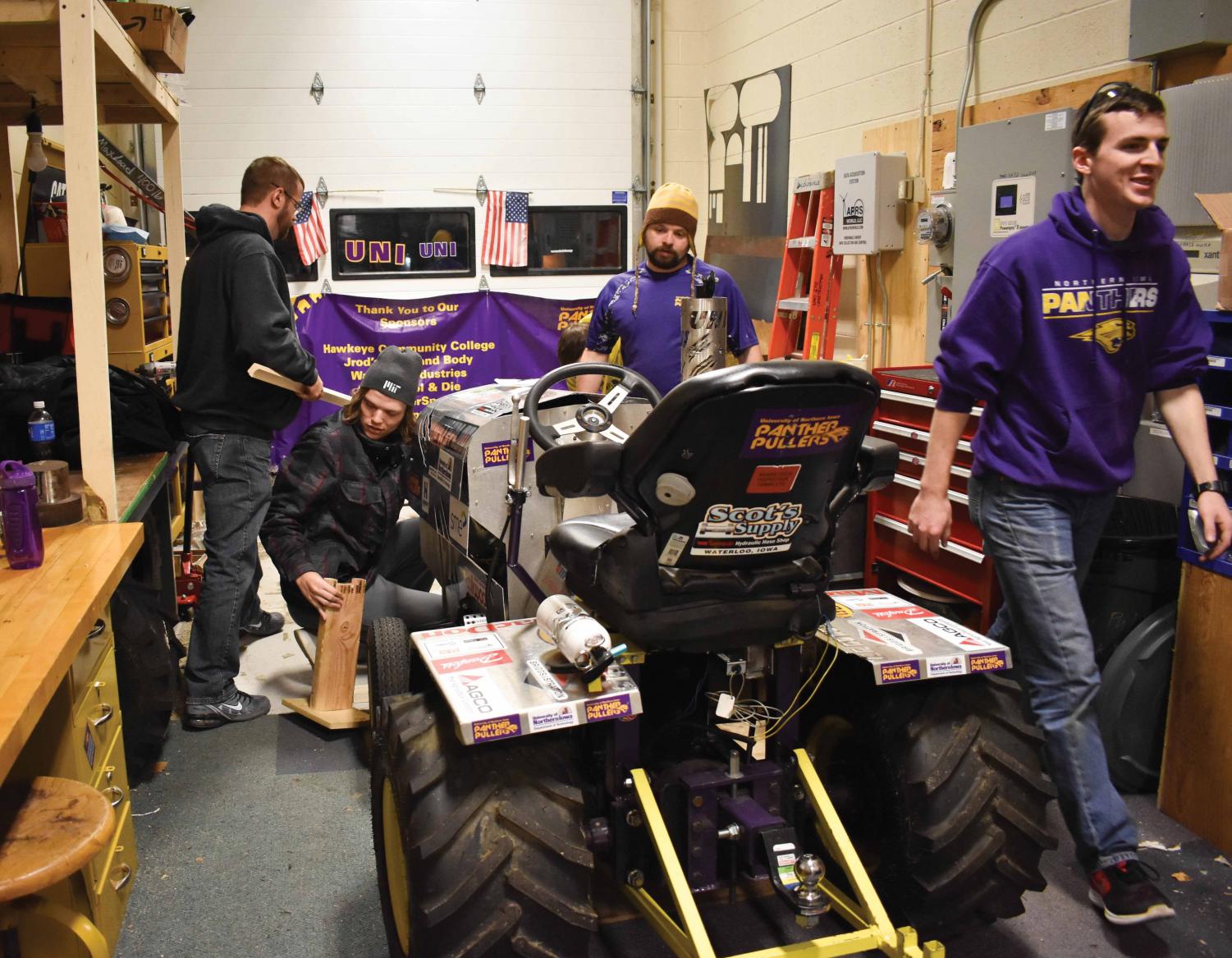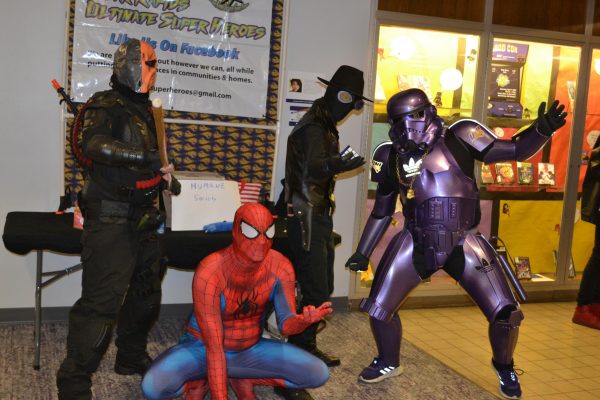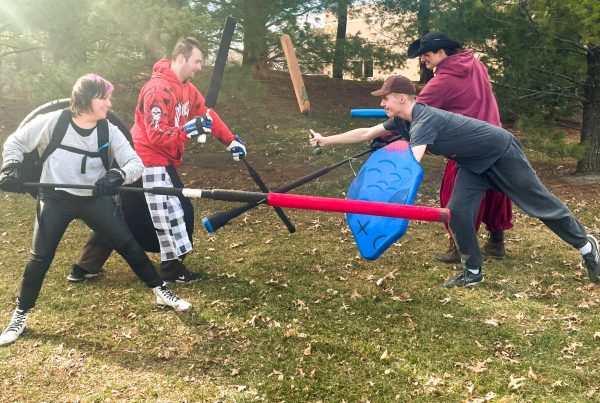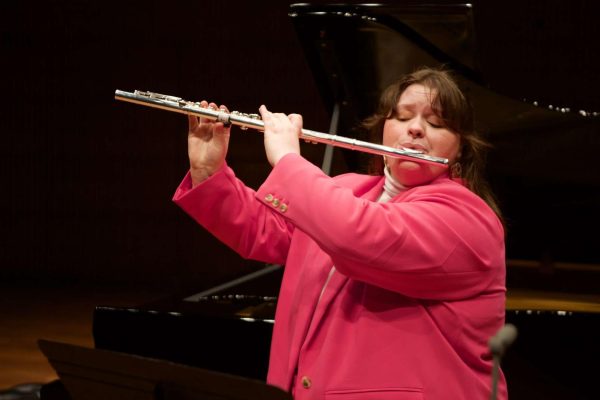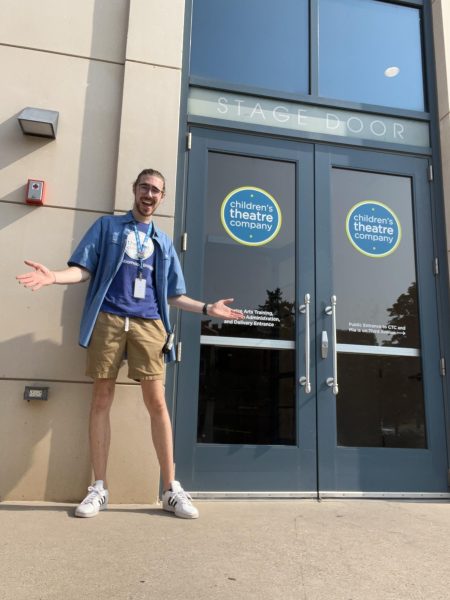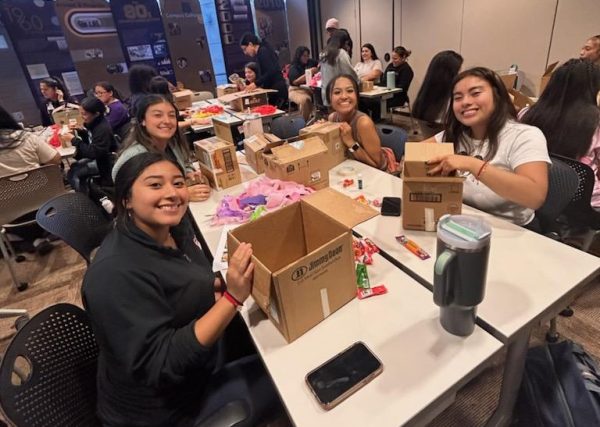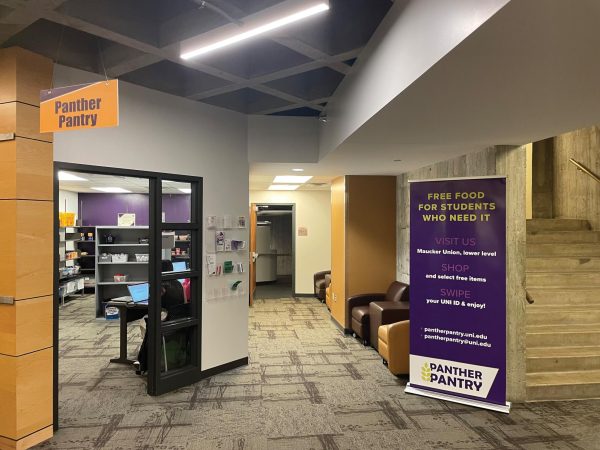Students to enter tractor design competition
Nov 29, 2018
As harvesting season draws to a close for many Iowa farmers, one UNI student organization is just beginning to design and build their very own small-scale tractor.
The UNI chapter of the Society of Manufacturing Engineers (SME) is preparing for their third year at the International 1/4 Scale Tractor Student Design Competition, hosted by the American Society of Agricultural and Biological Engineers. UNI’s SME team goes by “Panther Pullers” in the competition.
“It’s a competition of design,” said Kyle Schick, a sophomore majoring in manufacturing engineering technology and technology management, as well as the president of UNI’s SME chapter. “You have to build, fabricate and fundraise. You have to sell [the tractor]. You have to present. You have to write a paper on your whole entire process of making this.”
This competition will be held in June in Peoria, Ill. Other teams that regularly compete come from Iowa State University and Purdue University. Since the contest is international, there are also participants from Canada and even countries overseas who ship their parts to Peoria and assemble their tractor on site.
“A lot of it now is we’ve seen things that have gone wrong, so we focus on those,” Schick said. “It’s never gonna be perfect. So, if we just keep improving upon that, it will get somewhat close. We just broke last year. [. . .] If we did better on our paper, our presentation, we could end up being really a threat to the whole entire competition. It’s just since we’re new, we’re still running into every mistake. But [other teams] have been in there for 20 years.”
The team hopes to complete their tractor design by the end of November. The first step will be to take apart their tractor from last year since they recycle parts from year to year. SME will then create 3D models for their project.
Each person on the team contributes with their unique skill set. Sometimes SME uses additional resources on campus, such as the art department’s lab, to turn their tiny tractor visions into realities.
Although ASABE provides the engine and the tires for the teams, the rest of the tractor is funded by sponsors. Because SME uses full-scale parts such as truck axles, they need to cut them down to the quarter-scale size for the competition.
The competition itself begins with a safety inspection. If the judges find something wrong with the tractor, the team is given the opportunity to fix the problem. The judges then grade each team’s design report, which they are required to submit ahead of the competition. They present to judges as if they are selling their tractors.
“Last year, the goal was just to get through it without getting disqualified,” Schick said. “Now, it’s ‘let’s get through it without breaking and improve overall.’”
Next, the tractors go through a durability competition where they must endure obstacles such as logs and bumps while pulling a trailer. There’s also a tractor pull portion of the contest.
The rule book to which teams must adhere is nearly 80 pages long. The top five teams receive prizes of $1,500, $1,200, $900, $700 and $500 respectively.
UNI’s SME chapter is comprised of students majoring in technology and engineering education, business and of course, manufacturing engineering. In addition to the tractor competition, the group tours local businesses to get real examples of what their future careers might look like. In the first month of the school year, they attended a trade show in Chicago with their senior chapter.
“It’s helped a lot academically, even though it’s kept me busy,” Schick said. “It’s such a very involved and very hard-core thing — we’ve been there in the building at like 3 a.m. building things. So, it’s a lot of work, but I like the work.”
The organization meets regularly every Monday and Tuesday at 5 p.m.
“It’s in the ITC. Most people don’t know where that is,” Schick said. “We’re over there in the garage room. We have our own little workspace there. If you find the tractor, you’re in the right place.”


